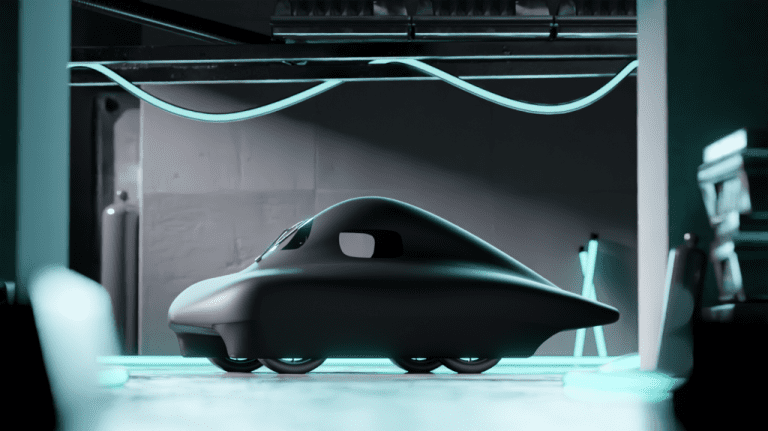Ecorunner wants its record back

The Ecorunner XIII is to become the most fuel-efficient car ever. (Image: Enshape Design Studio)
The Ecorunner team presented the new design of their ultra-efficient car last week. The Ecorunner XIII is designed to cover more than 2055 kilometres on just 950 grams of hydrogen.
‘The record was first set at 1196 kilometres by the Ecorunner Team XI (2020-2021),’ writes PR manager Eline Schwietert. ‘Then Toyota broke that and after that ARM Engineering. So the record of 2055 km now belongs to ARM Engineering.’
Due to the long distance, material fatigue may occur, so the team decided on a more robust construction. “With a heavier car, you do sacrifice some efficiency, so choices and trade-offs had to be made there. In short, we have been very busy finding a balance between efficiency and robustness.”
In May, Ecorunner Team XIII will unpack the gauntlet again at the Eco-marathon where efficiency will be determined. The assault on the world record will then follow in June. With a top speed of 45 kilometres per hour, the team expects to have to drive non-stop for three days to set the record.
- More information and videos on the Ecorunner website
Do you have a question or comment about this article?
j.w.wassink@tudelft.nl

Comments are closed.